Untouchables News.11.04.2024.by.Team Sivaji.
Victim is Dalit, Human Rights Commission seeks report

The National Human Rights Commission has called for a report on the alleged gang rape of an 18-year-old Dalit student in a government college in Patiala, Nabha. At the same time, the police has added SC/ST Act in the FIR.
The victim’s father said, ‘My daughter had a dream of doing something big in life. Despite being a daily wage labourer, I ensured his good higher education. Due to kidney disease his weight is barely 32 kg. Now I will never send her to college.… I am a Dalit and despite all the opposition from my relatives, I always wanted my daughter to become an officer. But his and my dreams are over.
The victim, who is now living with a close relative, says that what happened to her and that too inside the college, has left her heartbroken. The victim told her parents that the three accused took turns to rape her and threatened her with murder, saying that they could gang rape her again. The victim’s father said, it is strange that hundreds of students study there but no one came to her rescue.
According to the allegation, all three accused of gang rape inside the college on March 27 are outsiders, but used to come to the college often. The victim student gathered courage and told her parents on April 7 and then complained to the police. Police have arrested two accused – Davinder Singh and Ravneet Singh – after registering an FIR on April 9, while police are conducting raids in search of Harry.
Dalit farmers from Gujarat ‘tricked’ into buying electoral bonds worth Rs 11K cr: Report

A Welspun official allegedly scammed Dalit victims into investing in electoral bonds.
Six members of a Dalit family from Gujarat were reportedly tricked into purchasing electoral bonds worth Rs 11,00,14,000 on October 11, 2023.
Of this, Rs 10 crore worth of bonds were encashed by the Bharatiya Janata Party (BJP), while the Shiv Sena took Rs 1 crore 14 thousand.
An official of Welspun Enterprises Ltd allegedly scammed the Dalit victims, promising them that their money would increase 1.5 times in a few years if they invested in the electoral bonds. Welspun has not commented on the same.
The incident came after the company acquired around 43,000 square meter of their land and persuaded the Dalits to use the money that they got as compensation to buy bonds on the pretext of avoiding trouble with the Income Tax Department, as per a report in The Quint.
“Welspun had acquired approximately 43,000 square meter of our agricultural land in Anjar for a project.
This money was part of the compensation we were given as per law. But at the time of depositing this money, Mahendrasinh Sodha, a Senior General Manager at the company, told us that such a huge amount can result in trouble with the income tax department…” said Haresh Savakara, the son of one of the six duped in the deal.
“He then introduced us to the electoral bond scheme, which he said would ensure that we get 1.5 times the amount in a few years. We are illiterate people. We had no clue what this scheme was but at that time it sounded very convincing,” added Savakara.
Haresh Savakara has named “Welspun Directors Vishwanathan Kollengode, Sanjay Gupta, Chintan Thaker, and Praveen Bhansali as the accused in the case along with Mahendrasinh Sodha (Senior General Manager at Welspun), Vimal Kishore Joshi (Anjar Land Acquisition Officer), and Hemant alias Danny Rajinikanth Shah (BJP’s Anjar City President),” in the statement released on the behalf of all the duped victims.
However, no police report has been filed in the case yet. The investigating officer has said “if the case merits an FIR”, they will file it once the investigation is complete.
As per the report, Welspun employee Mahendrasinh Sodha who was involved in the acquisition process, held four meetings with Savakara and his son Haresh at Welspun’s Guest House in the company’s compound between 1 October 2023 and 8 October 2023. He eventually convinced them to invest money in the electoral bond scheme citing income tax trouble and handsome returns.
Moreover, he also alleged that BJP Anjar City President Hemant Rajinikanth Shah was part of these meetings. However, Shah has refuted these claims.
Delivering a historic judgment on a batch of petitions challenging the validity of the ‘Electoral Bonds Scheme’, the Supreme Court in February held it “unconstitutional” and violative of the Right to Information and Article 19(1)(a). Two separate but unanimous verdicts were delivered by a five-judge Constitution bench headed by Chief Justice D Y Chandrachud.
Since then, the Opposition has been taking potshots at the ruling BJP over the magnitude of donations it had received since the beginning of the scheme.
Notified by the government on January 2, 2018, the scheme was pitched as an alternative to cash donations made to political parties as part of efforts to bring transparency in political funding.
Courtesy : DH
Muzaffarnagar: Chaudhary Jayant said – will get the cases filed against Dalits withdrawn, took out a road show riding on Shakti Rath

Muzaffarnagar News: Chaudhary Jayant Singh said that the cases registered against Dalits on April 2, 2018 will be withdrawn. He took out a road show in Muzaffarnagar riding on Shakti Rath.
Published by: Kapil kapil
Rashtriya Lok Dal President Chaudhary Jayant Singh said that the cases filed against the people of Dalit community on April 2, 2018 will be withdrawn from the government. Will keep the problems of Dalit society in governance.
In the felicitation ceremony organized by Cabinet Minister Anil Kumar at the resort on Pachanda Road in Muzaffarnagar, Jayant Singh said that the cases registered against the Dalit community during the April 2 movement will be returned after meeting the Chief Minister. By issuing a letter to all the MLAs, he has clearly stated that he will spend 35 percent of his MLA funds on Dalits and 16 percent of the money will be spent on minorities. The problems of Dalits will be put on the platform of the government.
BJP candidate from Muzaffarnagar Lok Sabha seat Dr. Sanjeev Balyan, RLD candidate from Bijnor seat Chandan Chauhan, Cabinet Minister Anil Kumar, Minister of State Kapildev Aggarwal expressed their views. RLD District President Sandeep Malik, Vinay Mittal, Purushottam were present.
Road show carried out riding on Shakti Rath
RLD national president Jayant Singh conducted a road show riding on Shakti Rath in Salarpur and Manphoda villages of Bijnor Lok Sabha constituency. Jayant Singh said that RLD has always been in the hands of party workers. Even during the time of Chaudhary Charan Singh, party workers were highly respected. It is only because of the workers that his party is getting public support today.
During this, candidate from Bijnor Lok Sabha seat Chandan Chauhan, RLD District President Sandeep Malik, MLC Vandana Verma, Ajit Rathi, Dharmendra Tomar, Sanchit Pradhan, Rahul Chaudhary, Vikram Saini, Pawan Ahlawat and Pradeep Kumar were present.
Back in dalit capital after 5 yrs, Akash faces a daunting task
https://www.hindustantimes.com/cities/lucknow-news/back-in-dalit-capital-after-5-yrs-akash-faces-a-daunting-task-101712774974954.html
For News on the go, Download HT app. Click https://htiphoneenglish.page.link/டவுன்லோட்.
எந்த வன்னியரும் தலித்துகளை காயப்படுத்த மாட்டார்கள்: விழுப்புரம் பாமக வேட்பாளர் முரளிசங்கர் தேர்தல் வாக்குறுதிகளை பட்டியலிட்டார்
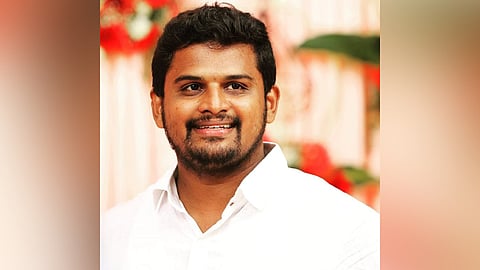
விழுப்புரம்: வன்னியர் சாதியைச் சேர்ந்தவர்கள் யாரும் உள்ளூரில் உள்ள தலித்துகளுக்கு தீங்கு செய்ய மாட்டார்கள் என்று விழுப்புரம் சட்டப்பேரவைத் தொகுதியின் பாமக வேட்பாளர் முரளிசங்கர் மக்களுக்கு உறுதியளித்தார்.
முரளி, TNIE உடனான உரையாடலில், கட்சிக்கு தனது நன்றியைத் தெரிவித்தார், மக்களுக்கு அவர் அளித்த வாக்குறுதிகள், எல்லா நேரங்களிலும் தனது குறைபாடுகளை ஏற்றுக்கொள்வதில் தனது நேர்மையை வெளிப்படுத்தி, தவறுகளை சரிசெய்வதற்கான உத்தரவாதத்துடன்.
பல அரசியல் கட்சிகளின் பொய்ப் பிரச்சாரங்களுக்கு எதிராக, வன்னியர் சமூகத்தைச் சேர்ந்தவர்கள் எவ்வளவு கருணை மற்றும் ஜனநாயகம் கொண்டவர்கள் என்பதை நிரூபிப்பதற்காக நான் புதன்கிழமை திரௌபதி அம்மன் கோயிலுக்குள் நுழைகிறேன். நான் கட்சி உறுப்பினராக இருக்கும் வரை, எந்த வன்னியரும் தலித் ஒருவருக்கு தீங்கு விளைவிக்க மாட்டார்கள் என்று உறுதியளிக்கிறேன். அவர்கள் மற்றொரு முரளியாகவே பார்க்கப்படுவார்கள்” என்கிறார் பாட்டாளி மக்கள் கட்சி (பிஎம்கே) வேட்பாளர் முரளி சங்கர்.
முப்பத்தி நான்கு வயதான சங்கர், வரவிருக்கும் தேர்தலில் போட்டியிடும் இளம் வேட்பாளர்களில் ஒருவர். தர்மபுரி மாவட்டத்தைச் சேர்ந்த சங்கர், கடந்த ஆறரை ஆண்டுகளாக பா.ம.க.வின் மாநில மாணவரணி செயலாளராக இருந்து, மாநிலம் முழுவதும் உள்ள தொண்டர்களிடையே தனது பரிச்சயத்தை வலுப்படுத்தினார்.
அவர் ஒரு கால்பந்து வீரர் மற்றும் பயிற்சியாளரும் ஆவார், சென்னையில் ஒரு தனியார் புல்வெளியை வைத்திருக்கிறார். முன்னதாக, அவர் 2021 மற்றும் 2016 சட்டமன்றத் தேர்தல்களில் முறையே வந்தவாசி மற்றும் ஹரூர் தொகுதிகளில் போட்டியிட்டார்.
விழுப்புரத்தில் எனது இலட்சியங்களான டாக்டர் ஐயா (பா.ம.க. தலைவர் டாக்டர். எஸ். ராமதாஸ்), டாக்டர் அண்ணன் (பா.ம.க. இளைஞரணி செயலாளர் டாக்டர். எஸ். அன்புமணி) ஆகியோரின் சொந்த ஊர் என்பதால், விழுப்புரத்தில் போட்டியிட டிக்கெட் கிடைத்ததை பெருமையாக கருதுகிறேன். இந்த தேர்தலில் எனக்கு,'' என்றார்.
சங்கர் SC/ST பிரிவினருக்கு ஒதுக்கப்பட்ட சீட்டில் இருந்து தேர்தலில் போட்டியிடுகிறார்.
இருப்பினும், பாமக தலைவர் உள்ளூர் வன்னியர் ஆதரவு கட்சியுடன் வலுவான பிணைப்பைக் கொண்டிருப்பதாக நம்புகிறார்.
சங்கர் தேர்ந்தெடுக்கப்பட்டால், விழுப்புரம் மற்றும் திண்டிவனம் பகுதிகளில் வேலை வாய்ப்புகளை மேம்படுத்த புதிய தொழில்துறை தாழ்வாரங்களை கொண்டு வர விரும்புவதாக கூறினார்.
"தொழில்நுட்ப பூங்கா நகரத்திலிருந்து 60 கிலோமீட்டர் தொலைவில் உள்ள வானூரில் அதன் முதன்மை நோக்கத்தை முறியடித்து அமைக்கப்பட்டுள்ளது," என்று அவர் கூறினார்.
மேலும், பயண நேரத்தைக் குறைக்கும் வகையில், குறிப்பாக புதுச்சேரி-விழுப்புரம்-சென்னை வழித்தடத்தில் இருக்கும் ரயில்களில் பெட்டிகளின் எண்ணிக்கையை அதிகரிக்கப்படும் என்று பாமக தலைவர் உறுதியளித்தார்.
மக்களவைத் தேர்தலில் பாஜக தலைமையிலான தேசிய ஜனநாயகக் கூட்டணியுடன் இணைந்து போட்டியிடும் பாமக, இடஒதுக்கீடு முறை குறித்து மாறுபட்ட கருத்துக்களைக் கொண்டுள்ளது.
கல்வி மற்றும் வேலைவாய்ப்பில் வன்னிய சமூகத்தினருக்கு எம்பிசி பிரிவின் கீழ் 10.5% உள் இடஒதுக்கீட்டிற்கு பாமக உறுதியளித்துள்ள நிலையில், பாஜக அந்த யோசனையை எதிர்த்துள்ளது.
இருப்பினும், மாநிலத்தில் இரு கட்சிகளும் கூட்டணி அமைத்துள்ள நிலையில், பா.ம.க., தலைவர், "நரேந்திர மோடியால் 500 ஆண்டுகால அயோத்தி பிரச்னைக்கு தீர்வு காண முடிந்தால், இந்த இடஒதுக்கீடு பிரச்னையை எங்கள் கட்சித் தலைவருடன் பேசி தீர்த்துக்கொள்ள முடியும்" என்றார்.
வாக்குறுதிகள் மற்றும் முன்னோக்குகள் ஒருபுறம் இருக்க, சங்கர், பட்டியல் மற்றும் சிறுபான்மை சமூகங்களைச் சேர்ந்த மாணவர்களுக்கு முறையே போஸ்ட் மற்றும் மெட்ரிக் ஸ்காலர்ஷிப்களை குறைப்பது மற்றும் ரத்து செய்வது பற்றி அறிந்திருக்கவில்லை.
"எனக்கு இந்த பிரச்சினை பற்றி தெரியாது, ஆனால் எனது தொகுதியிலும் தேசத்திலும் உள்ள தலித்துகள் மற்றும் சிறுபான்மையினரின் காரணங்களுக்காக நிச்சயமாக குரல் கொடுப்பேன்."
ஆமாம்.வன்னியர்கள் Sc இன மக்களை தொந்தரவு செய்தது கிடையாது.
ஆமாம்.
1) தமிழ் நாடு முழுவதும் மரங்களை வெட்ட வில்லை.
2)தமிழகம் முழுவதும் ஆதி திராவிடர்களை ஓட விட்டது கிடையாது.
3)விழுப்புரத்தில் எரிகரயில் ஆதி திராவிடர்களை கொண்ணது கிடையாது.
4)தர்மபுரி யில் 300 குடும்பங்களை ஓட விடவில்லை.
நிறைய உள்ளது.
வண்ணியனுக்கு பொறந்த SC இங்கு நிக்கரான்.ஓகே.கோ அ head.cross pollination...

The path Ambedkar showed: Why lower castes embrace Buddhism
The Gujarat government has said conversion to Buddhism will require prior approval of the authorities. Buddhism's egalitarian appeal has long attracted the oppressed in Hinduism.
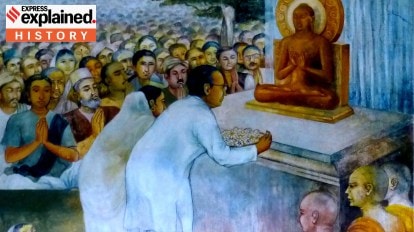 An artistic representation of Dr Ambedkar and his wife, Savita, embracing Buddhism in 1956. (Wikimedia Commons)
An artistic representation of Dr Ambedkar and his wife, Savita, embracing Buddhism in 1956. (Wikimedia Commons)The Gujarat government has said conversions from Hinduism to Buddhism require prior approval from the district magistrate under provisions of the Gujarat Freedom of Religion Act, 2003 (GFRA).
Every year, thousands of Dalits in Gujarat (and elsewhere) convert to Buddhism, often en masse. Ramesh Banker, secretary of the Gujarat Buddhist Academy, told The Indian Express that at least 2,000 people, mostly Dalits, converted to Buddhism in Gujarat in 2023.
The most famous Dalit convert to Buddhism in independent India is Dr B R Ambedkar, who embraced Buddhism along with lakhs of followers in 1956. But the history of lower castes turning to Buddhism goes much further back in history.
Buddhism’s promise of equality
Buddhism emerged in the fifth century BCE, out of the teachings of Siddhartha Gautama (c. 6th-5th century BCE). According to Buddhist tradition, Gautama, son of the chief of the Sakya kingdom, in present-day Nepal, became a wandering ascetic after becoming disillusioned with the world around him. He started preaching a novel doctrine and, after his death, his followers created a congregation to pass down their teacher’s words — and thus, a new religion was born.
Buddhism’s growth has been viewed by scholars as a response to the orthodoxy of the prevailing Vedic religion. L P Gomes wrote in The Encyclopedia of Religion (ed. Mircea Eliade, 1989): “The roots of Indian Buddhism are to be found in the shramanic movement of the sixth century BCE… [The shramanas] set religious goals that stood outside and in direct opposition to the religious and social order of the brahmanas”. Jainism is the other major religion to have emerged in a similar social setting, albeit slightly earlier than Buddhism.
Buddhism started off as a non-ritualistic religion that rejected the elaborate animal sacrifices of the Vedic religion, and was more accessible to the laity. The Buddhist sangha (monastic order), which formed soon after The Buddha’s death, was open to people from all sections of society, including the so-called “untouchables”.
Conversion for emancipation
Buddhism rejected the institution of caste that formed the backbone of Vedic society. Dr Ambedkar wrote: “Buddhism was a revolution. It was as great a Revolution as the French Revolution.” (Revolution and Counter-Revolution in Ancient India, an incomplete manuscript published in 2017).
Buddhism eventually declined in India (even as it flourished in East and South-East Asia), and caste society prevailed for another couple of millenia. In the 19th and 20th centuries, however, radical intellectuals from oppressed castes once again started to harken to Buddhism in their bid to challenge the Brahmanical hegemony.
Among them was Iyothee Thasar in the Tamil region, who imagined a Dravidian identity with roots in a Buddhist past. In Malayalam-speaking areas, reformers such as Mitavadi Krishnan and Sahodaran Ayyappan proposed leaving Hinduism as a political tool to negotiate the rights of the lower castes.
In the early decades of the 20th century, as India saw various social reform movements, the threat of conversion played an important role in negotiations for rights such as temple entry, right of way, anti-untouchability legislation, and the promotion of inter-dining and inter-caste marriages.
Dr Ambedkar told a gathering of Mahars in Mumbai in 1936: “I tell you all very specifically, religion is for man and not man for religion. To get human treatment, convert yourselves.”
After spending decades studying Buddhism, and coming up with his own radically anti-caste, rationalist version, Ambedkar converted to Buddhism on October 14, 1956, along with over 3.6 lakh followers.
Since then, the practice of lower castes converting to Buddhism has become prevalent across the country, not only seen as an avenue for emancipation, but also as the path taken by Dr Ambedkar.
Suraj YengdeOpinion11 April 2024ArtReview Asia
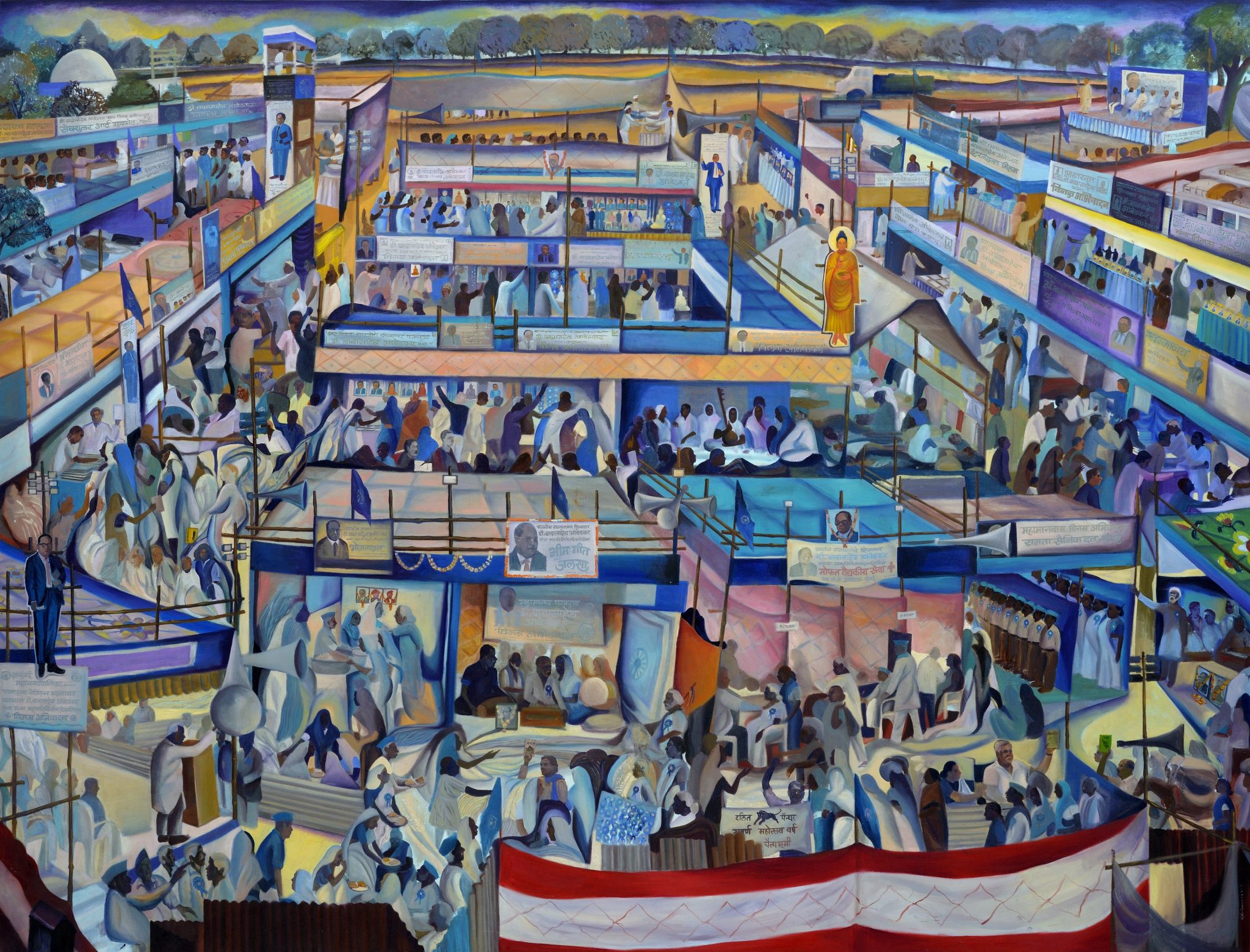
The works of Vikrant Bhise are connected by the hope for justice and equality that they express
There are traditions that are held close by people who draw on their lineage to give themselves meaning in the world. But traditions are not necessarily linear; at times they are built on fictions that represent a grandiose retelling of the past and of the lives of ancestors. Some traditions are built upon people’s fiction; some combine imagination and relative truth. Historian Eric Hobsbawm famously commented on the tenor of what constitutes tradition and how customs are created: he rejected the argument about tradition being a continuing affair with the past; saying instead that it is created frequently, invented, as a sort of memory.
Memory in a Proustian doctrine is a playable drama. One recounts and plays the past into a memory, making it relatable and enjoyable in the process. As a consequence, oftentimes, these memories are a recreation of one’s desires. These actions account for the past as we want it to be. As a kind of anecdote or proverb.
But the many people who are mindlessly pushed aside into the corners of the ‘developed’ world don’t have the means or the opportunity to turn their memories into literature. They are robbed both of their story and of the means to tell it. Yet while their minds may be colonised, and thus their memories unrecorded, that memory itself cannot be stolen.
When memory acquires politics, it is a call against the reactionary tabula rasa. Memory for many of us is an ancestral gift preserved through suttas, poems, epics and orality. For this model to work requires an undaunted faith in the ability of a flexible mind. We rehearse in our minds to add higher, unsimplified meanings to ephemeral realities.
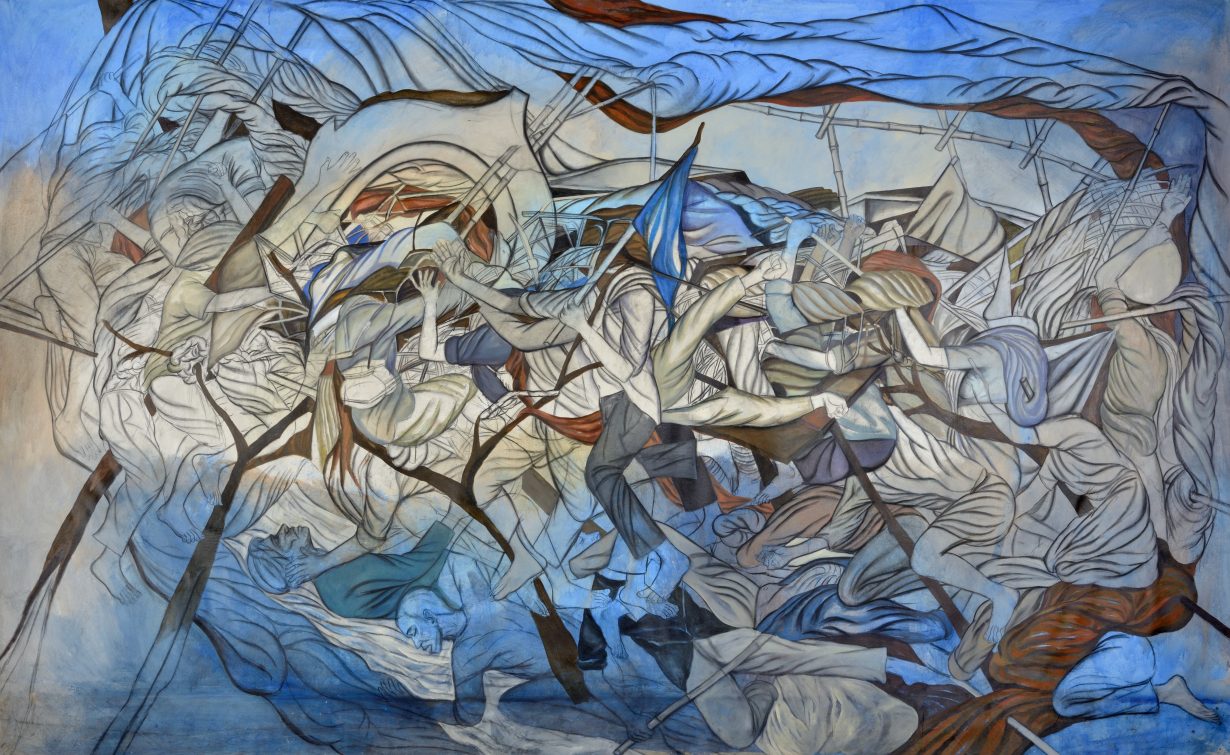
The Dalit community in India has persevered against the madness of feudal, Brahminical edicts written down as laws. We narrated our endurance through whispers of art and the actions of the Dalit Panthers or Samata Sainik Dal (a defence organisation established by Dalit social reformer Bhimrao Ramji Ambedkar and dedicated to preserving the rights of India’s oppressed peoples). Our social history has been recorded in our memories but has not yet been preserved. Almost every Dalit artist equipped with an anticaste, activist background has made it possible to view Dalit semantics. Among these last is artist Vikrant Bhise, whose figurative painting was on show at Anant Art Gallery in Noida, Uttar Pradesh. Vikrant works on large canvases. His choice of subject matter is urbane and limited to his life experiences. His subject is the untouched but you won’t find the segregated squalor of the countryside here. The diverse works in Sense and Sensibilities: A Reflective Realisation were connected by the hope for justice and equality that they express, optimistically and ironically married to the constitutionalist frame and state.
Vikrant has curated the social story of contemporary India. Chaityabhumi: Assembly of the Parinibban of Great Being (2023) refers to the site in Mumbai where Ambedkar was cremated and is visited by over a million visitors from across the world over the two days in December that mark the anniversary of his death. At the centre of the painting is the marketplace, a sea of humanity. On the horizon is a verdant forest, as Vikrant replaces concrete jungles with an ecological embrace of the congregation, paying homage to the Sangha of the Buddha, who is pictured, hovering above a stall, centre-right. Like many of his recent works it is suffused with the ambience of a cerulean blue. It’s a guarantee of his politics. Blue is a metaphor of the large, expanding, common sky, roofed over the homeless and destitute. As such it is also a call for the revolution of the oppressed.
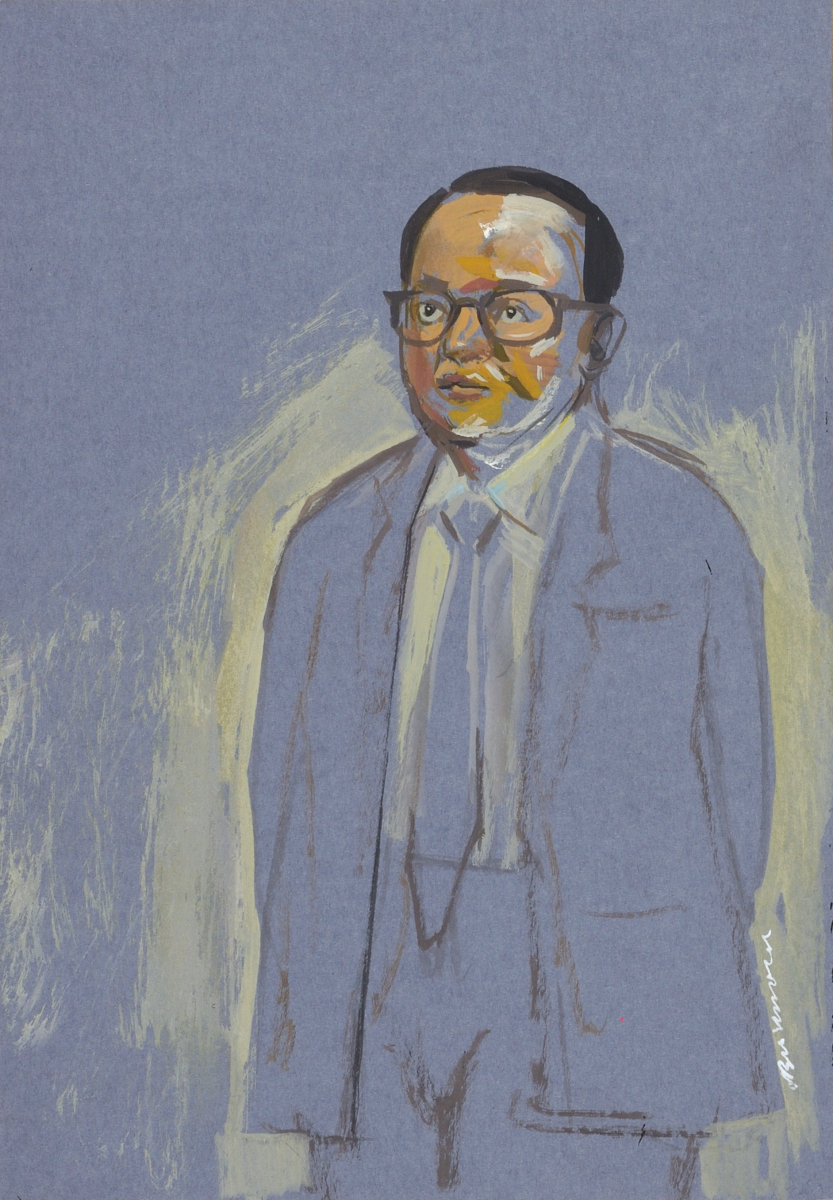
Indeed Vikrant carries solidarity and struggle as the object of his investigation. His Archival Historicity/Dalit Panthers series (2023; 100 gouache paintings arranged in a pyramid) records the history of the movement, its rise and fall narrativised through adjacent frames.
But Vikrant does not only paint the Dalit struggle. His work also spans struggles in America, looking at Martin Luther King Jr and Palestine (Gaza Anarchy: Women & Children, 2023, for example). But ultimately these struggles are all against the casteist feudal state. The Palestinians are aiming at the coloniser. The Kashmiris are left directing that anger towards the militarised zones that occupy their private property. In Africa and elsewhere, civil protests are those of the common people, having to find natural resources. Central to Vikrant’s concern are human beings facing a perilous existence. Buried in the hubris of caste, class, religion, gender and everyday life, Vikrant wants to make them objects of beauty and decorum.
Suraj Yengde is a W.E.B. Du Bois Fellow at Harvard University and a doctoral candidate at the University of Oxford. He is the author of Caste Matters (2019).



Comments
Post a Comment